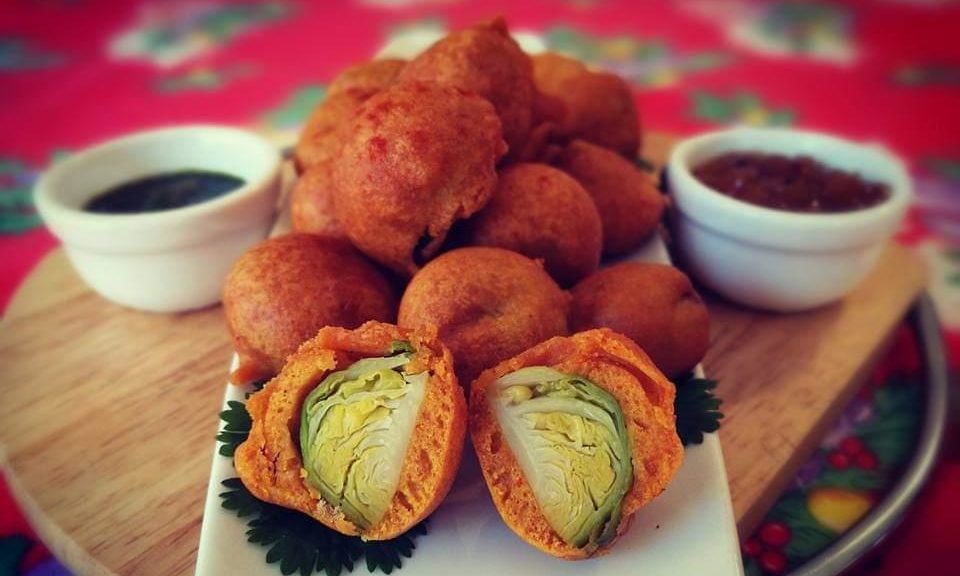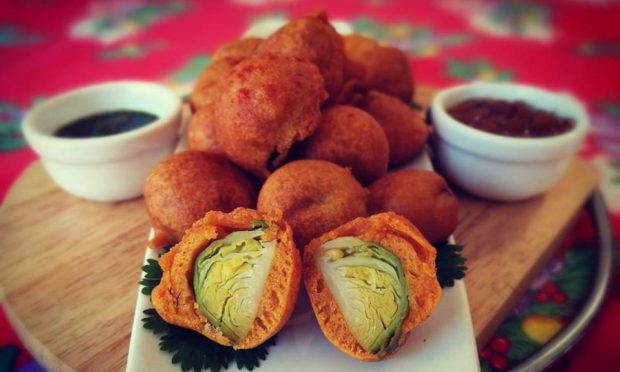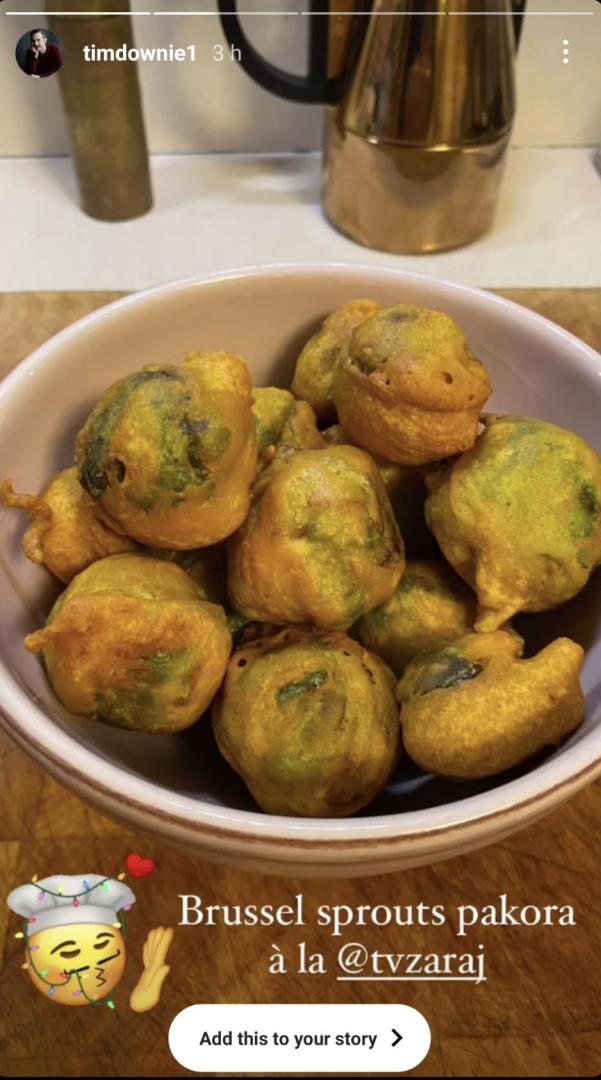With so many different cultures celebrating the festive season, TV presenter Zara Janjua gives an insight into a Pakistani dish she and her family love at this time of year – pakora Brussels sprouts.
Brussels sprouts get a bad rap for being the one dish many around the dinner table would rather avoid than indulge in on Christmas Day.
And while it’s popular to serve sprouts with chestnuts, fried bacon and a whole heap of other ingredients to make them more appealing, Scottish TV presenter, food blogger and Instagrammer Zara Janjua has a rather more innovative idea.
When she recently shared her recipe for Brussels sprouts pakora on Twitter, it garnered a huge response with even celebrities joining in.
Family tradition
A staple in her family’s household at Christmas, Zara says she and her family love to experiment with different pakoras.
Zara said: “Pakora making is a weekly tradition that heralds the start of the weekend in the Janjua household. Unlike the velvet cake-coloured chicken pakora you see in takeaways, we usually make a vegetable mix with potato, onion and peas.
A staple in our Scottish Pakistani home at this time of year. Brussels sprouts pakora. Yes or no?#averymuslimchristmas pic.twitter.com/QcKInsMpj3
— Zara Janjua (@TVZaraJ) November 26, 2020
“We have always experimented with flavours and fillings but from the first of December, Brussels sprouts is a clear favourite in our house. For four consecutive Saturdays in the month we wait for the sizzling sound of the pan and gather in the kitchen to scoff them straight from the fryer.
“We often assemble leftover Christmas dinner samosas, we have even tried fish and chip pakora and Mars Bar pakora (this was my niece’s suggestion and it’s actually pretty delicious).
“The sprouts recipe changed a couple of years ago and we started shredding the pakora before adding them to the batter. It’s much crispier and an even better way to disguise the often dreaded veg from non-believers! If you don’t like sprouts this will blow your mind, trust me.”
Going viral
Sharing a picture of the festive favourites on her social media channels, Zara has even had actors like Tim Downie who is best known for playing Governor Tyron in Outlander, making them at home. Nigella Lawson also liked her Tweet.
The Tweet itself has been liked by 11,500 people, retweeted 991 times and has 2,000 comments on it.
Zara continued: “It has been mind blowing. I posted a picture of the dish with a little backstory and my phone began pinging with comments, likes and retweets. The momentum persisted for days.
“Who knew pakora could be such a talking point? And so divisive. It’s like Marmite – people either loved the idea or they hated it. Someone suggested I may have broken the law. Another person banned me from the kitchen forever!
“But there were some overwhelmingly positive responses too. ‘Culinary genius’ was a term used by a few, which I credit my mum Gloria for (or wee Glo, as I call her). The post currently has around 11,500 likes and even got the attention of Nigella Lawson – the culinary goddess herself.
“I ran a poll on Instagram to determine if it was a kitchen win or fail and the results speak for themselves; 71% said yes to Brussels sprouts pakora and 29% said no. Since posting, people have been getting in touch to share their attempts at the recipe. I love to see how they are adapting and putting their own spin on it.”
My practice batch! pic.twitter.com/1Ai7kE53r0
— Dr Alison Iredale (@alisoniredale) November 29, 2020
But Zara admits the delicious veggies don’t usually make it to the dinner table as they are usually demolished straight after cooking.
“Full disclosure – these treats rarely make it to the table. They are often devoured as they sit on kitchen paper to release excess oil, the serving tray lying baron and discarded. So before we begin to fry them off, we pull together a few chutneys and dips. One of my favourites is fresh coriander, fresh tomato, chillies, garlic and lemon. Yoghurt-based dips are also really lovely for pakora dunking. A mint and garlic based dip (much like raita) is cooling and moreish, I can eat it with a spoon.”
Zara’s Brussels sprouts pakora

Ingredients
- 170g gram flour
- 57g self-raising flour
- 500g Brussels spouts
- 1 litre vegetable oil or sunflower oil to deep fry
- 250ml water
- 2 heaped tsp chilli powder
- 1 tsp turmeric powder
- 2 tsp salt
Method
- In a bowl mix the flour, chilli powder, turmeric and salt. Slowly add the water to form a batter consistency. Cover and leave at room temperature for one hour. Add half a teaspoon of whole or powdered cumin to the batter for more spice.
- If you are using fresh sprouts, peel the outer leaves and remove most of the stalk before cutting in half. For leftover sprouts, leave whole. Place sprouts into the batter and cover evenly.
- Heat the oil to 360°F. If you don’t have a thermometer, drop a small amount of batter into the oil to test the temperature. If it is ready, the batter should begin to bubble and cook instantly. It is best to batch cook these, do not overcrowd the pan when deep-frying. Using a dessertspoon to scoop each piece individually with a generous amount of batter.
- Lower into the pan, dropping the sprout and batter into the hot oil. Turn the pieces occasionally to allow them to cook evenly. After 5-7 minutes they should be a deep golden brown colour. Remove and place on kitchen roll to soak up excess oil.
- You can place the cooked pakora on a baking tray and keep in the oven at 200°F while you prepare the remaining batches.
- Dust with chilli powder and serve with mango chutney, fresh coriander dip or yogurt.
The pakora will keep fresh for up to four days in the fridge. So you can prepare in advance and heat them back up in the oven at 240°F for 10 minutes to get them nice and crisp for guests arriving. They are best served fresh.

